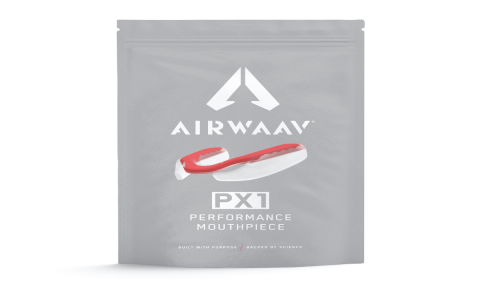In the world of football, performance can hinge on numerous factors, ranging from player form to tactical maneuvers. Recently, the focus has shifted to an unexpected area: the impact of mouthpiece flavors on player performance. Several elite athletes have begun to explore how taste can affect their game, revealing a surprising intersection of psychology and physicality on the pitch. As players embrace this innovative trend, the question emerges: does flavor enhance performance in football?
During a recent match, midfielder James Henderson spoke candidly about his new mint-flavored mouthpiece. “I feel more energized and alert when I taste mint,” he exclaimed, highlighting the psychological boost he gains from the freshness. This flavor seems to invigorate him during critical moments of the match. Indeed, as Henderson dribbled past defenders, he was a picture of confidence, possibly fueled by his preference for the refreshing taste. Coaches have noted that players incorporating favored flavors tend to make quicker decisions under pressure.
Moreover, the taste experience becomes even more relevant considering the high-stakes nature of competitive football. The mental demands on players are immense; they must think quickly and execute flawlessly. Coaches are beginning to recognize that something as simple as flavor can play a role in a player\’s mindset. For instance, after a nail-biting match where a last-minute goal secured victory, Coach Martin emphasized the need for players to be in a positive mental state. “When they’re happy with their choices, including their mouthpiece, they perform better,” he stated. This indicates a shift in how the psychological aspect of flavor could alter a game\’s outcome.
Yet, this trend is not limited to just flavor preferences; it reflects a broader awareness of players\’ psychological needs. Additionally, external factors, such as weather conditions, can heavily influence a football game. On a hot day, a player might find comfort in a citrus flavor, which could have a cooling effect on his senses. As players adapt to these changes, flavors play a crucial role in maintaining focus and stamina throughout the match.
The Players\’ Perspective
The opinions of players are vital in understanding this phenomenon. For instance, striker Lucas Ramos has recently adopted a berry-flavored mouthpiece. “The taste boosts my mood, especially when fatigue sets in during the second half,” he noted, revealing how flavor can possibly stave off feelings of exhaustion. His performance statistics support this assertion; he scored twice in the match following his mouthpiece change. Testimonials from players like Ramos emphasize the correlation between flavor preferences and improved concentration, allowing them to break through mental barriers.
Interestingly, the implications of flavor extend beyond individual players to the team as a whole. Teams investing in custom mouthpieces with enhanced flavors may find themselves creating a unique bond among players. Shared experiences, even those as small as selecting flavors, can lead to greater teamwork and communication on the field. This collaboration becomes crucial in tense moments, where synergy can be the difference between victory and defeat.
As such, while the relationship between mouthpiece flavor and performance needs further research, initial findings are promising. Players are already expressing their experiences in forums and interviews. They are curious to discover new flavors that can further elevate their performance. The camaraderie fostered through these discussions can explore intriguing dynamics that transcend purely physical attributes.
Looking ahead, one has to consider the broader implications of flavor choices in football. How might this influence growing trends in sports psychology and performance enhancement? As the conversation evolves, it will be fascinating to see if taste becomes a standard part of pre-match routines for players across the globe.
In conclusion, the enhancement of performance through mouthpiece flavors poses a compelling question for fans and aficionados alike: Could your favorite flavor change the game for you? As we delve deeper into this exploration of psychology, will we soon see team strategies incorporating such nuances? Share your thoughts, and let’s discuss how flavor can potentially revolutionize the beautiful game.















